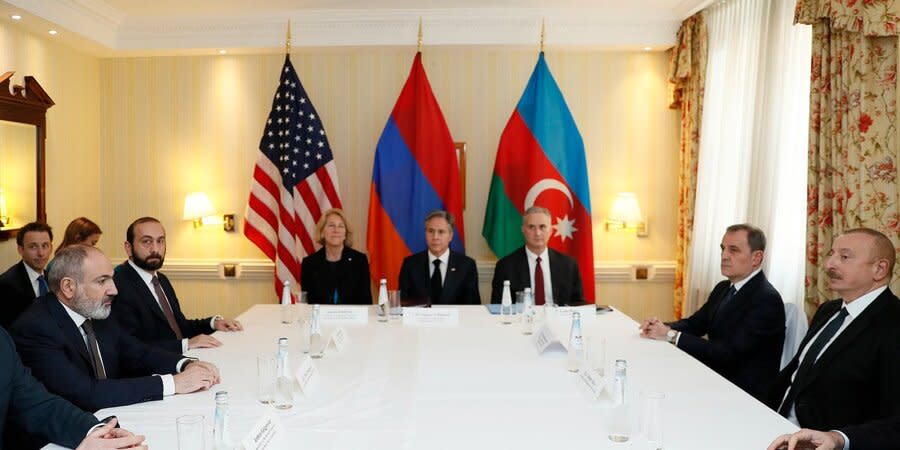Armenia and Azerbaijan discuss peace treaty in Munich

- Oops!Something went wrong.Please try again later.
- Oops!Something went wrong.Please try again later.
This is the first meeting between the two leaders since October amid escalating tensions in Nagorno-Karabakh.
According to the news agency, another party to the talks was U.S. Secretary of State Antony Blinken.
The situation in the conflict between the two countries has been seriously aggravated by the two-month blockade of the Lachin corridor, the only land route that gives Armenia direct access to Nagorno-Karabakh.
"I think Azerbaijan and Armenia need to demonstrate that the transition from long-lasting stand off, mutual hatred and hostility must end," Aliyev said.
Read also: Azerbaijani activists block Russian military column in disputed Karabakh
At the same time, he accused Armenia of occupying Azerbaijani lands for almost 30 years and criticized officials of the self-proclaimed Nagorno-Karabakh.
In response, the Armenian prime minister said that "Azerbaijan has adopted a revenge policy" and asked whether the meeting should be used for "enflaming intolerance, hate, aggressive rhetoric" or to improve the situation.
A few days before the meeting between Aliyev and Pashinyan, media reported that Yerevan had completed work on the next stage of the agreement on the establishment of peace and relations with Baku and sent proposals to the Azerbaijani side.
After the trilateral talks with Blinken, Pashinyan's office said that he reaffirmed Armenia's determination to reach an agreement that "will truly guarantee long-term peace and stability in the region."
Read also: CSTO ‘may withdraw from Armenia,’ according to PM Pashinyan
“I think (the peace agreement) could be a good example of how countries which had serious, historical disagreements can get together and turn the page of hostility," the Azerbaijani leader concluded.
The countries have been involved in the Nagorno-Karabakh conflict since 1992. The territory is an internationally recognized part of Azerbaijan, but the vast majority of its 120,000 inhabitants are ethnic Armenians.
Earlier, the Armenian authorities refused to host the Collective Security Treaty Organization exercises scheduled for 2023.
We’re bringing the voice of Ukraine to the world. Support us with a one-time donation, or become a Patron!
Read the original article on The New Voice of Ukraine

